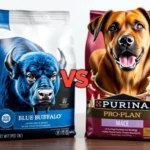
Introduction
When it comes to dog nutrition, understanding what your furry friend can safely consume is of utmost importance. Just like humans, dogs require a balanced diet to thrive, but not all foods that are safe for us are safe for them. One food that often raises questions among pet owners is jalapeños. These spicy peppers are a staple in many cuisines, but can they be part of your dog’s diet?
In this guide, we will explore whether dogs can eat jalapeños, the nutritional value of these peppers, potential risks, and alternatives to consider. By the end of this article, you’ll have a clearer understanding of how jalapeños fit into your dog’s nutrition and what to keep in mind regarding their diet.
Understanding Dog Nutrition
The Basics of Canine Nutrition
Dogs are omnivores, meaning they require a balanced intake of proteins, fats, carbohydrates, vitamins, and minerals. Here’s a quick overview of the essential nutrients:
- Proteins: Vital for muscle growth and repair, proteins are the building blocks of your dog’s body. Quality sources include lean meats, fish, and certain plant-based proteins.
- Fats: Healthy fats provide energy, support cell function, and help absorb fat-soluble vitamins. Sources include fish oil and certain seeds.
- Carbohydrates: While not essential, carbohydrates can be a good energy source. Whole grains and vegetables are healthier options.
- Vitamins and Minerals: These play a crucial role in various bodily functions, including immune response and bone health.
A balanced diet is essential for your dog’s overall health, helping to prevent obesity, dental issues, and other health problems.
Common Misconceptions About Dog Food
Many pet owners believe that all human food is safe for dogs, but this is a misconception. Foods like chocolate, grapes, and onions can be toxic to dogs, while others may cause digestive upset. Understanding which foods are safe and nutritious is crucial for maintaining your dog’s health.
Nutritional Value of Jalapeños
Overview of Jalapeños
Jalapeños are medium-sized chili peppers that originate from Mexico. They are known for their distinct flavor, which can range from mild to hot, depending on the variety. Nutritionally, jalapeños are low in calories and a good source of vitamins C and A, fiber, and antioxidants. Here’s a breakdown of their nutritional content per 100 grams:
- Calories: 29
- Protein: 0.91 g
- Fat: 0.4 g
- Carbohydrates: 6.5 g
- Fiber: 2.8 g
- Vitamin C: 143.7 mg
- Vitamin A: 187 µg
While they offer health benefits for humans, we must consider how these nutrients align with what dogs need.
Health Benefits for Humans
For humans, jalapeños can help boost metabolism, reduce inflammation, and even lower the risk of certain diseases due to their capsaicin content. However, dogs have different nutritional needs and tolerances, making it essential to examine whether these benefits translate to canine diets.
Can Dogs Eat Jalapeños?
Safety of Jalapeños for Dogs
The question remains: can dogs eat jalapeños? Generally, jalapeños are not toxic to dogs. However, they contain a compound called capsaicin, which can cause discomfort and distress. While dogs may not be poisoned by consuming jalapeños, their digestive systems are not equipped to handle spicy foods, which can lead to gastrointestinal upset.
Potential Risks of Feeding Jalapeños to Dogs
Feeding your dog jalapeños can result in several potential risks:
- Gastrointestinal Issues: The most common reaction is digestive upset, which may include symptoms such as vomiting or diarrhea. Dogs may also experience gas and bloating.
- Allergic Reactions: Some dogs may have sensitivities or allergies to spicy foods, leading to more severe reactions.
Recommended Serving Sizes and Preparation Tips
If you choose to feed your dog jalapeños, moderation is key. A small piece or two of cooked jalapeño may be tolerable for some dogs, but it’s best to start with a tiny amount to see how they react.
Preparation Tips:
- Cooked vs. Raw: Cooking jalapeños can reduce their heat level, making them easier for your dog to digest. Avoid seasoning them with salt, garlic, or onion, as these can be harmful to dogs.
- Remove Seeds and Stem: These parts can be more difficult for dogs to digest and may increase the spiciness.
Alternatives to Jalapeños
Safe Vegetables for Dogs
If you’re looking for dog-friendly vegetables to incorporate into your dog’s diet, consider the following options:
- Carrots: Great for dental health and low in calories.
- Green Beans: High in fiber and low in fat, making them a healthy treat.
- Sweet Potatoes: Packed with vitamins A and C, they are also a good source of fiber.
These alternatives offer nutritional benefits without the risks associated with spicy foods.
Spicy Foods and Dogs
In general, spicy foods should be avoided in a dog’s diet. While some dogs might tolerate small amounts of spice, it’s not advisable to make it a regular part of their meals. Instead, consider flavoring their food with safe herbs like parsley or basil.
Signs of Trouble After Eating Jalapeños
Symptoms to Watch For
If your dog consumes jalapeños, watch for signs of distress, which may include:
- Vomiting
- Diarrhea
- Excessive drooling
- Signs of discomfort or pain
These symptoms may indicate that your dog is reacting poorly to the spicy food.
When to Seek Veterinary Help
If your dog shows severe symptoms, such as persistent vomiting, lethargy, or signs of dehydration, it’s essential to consult your veterinarian immediately. Prompt action can prevent more serious health issues from developing.
Conclusion
In summary, while dogs can eat jalapeños, it is not advisable due to the potential risks associated with their spiciness. Understanding your dog’s nutritional needs is crucial for their well-being. Always prioritize a balanced diet tailored to your dog’s specific requirements and avoid giving them human foods unless you are sure they are safe.
When in doubt, consult with your veterinarian for personalized advice regarding your dog’s diet and nutrition.
FAQs
Can dogs eat spicy foods?
No, it’s best to avoid spicy foods in your dog’s diet, as they can lead to gastrointestinal distress.
What vegetables are best for dogs?
Safe vegetables for dogs include carrots, green beans, peas, and sweet potatoes.
How can I tell if my dog is having a reaction to a new food?
Watch for symptoms such as vomiting, diarrhea, or signs of discomfort.
Are there any other human foods that are harmful to dogs?
Yes, foods like chocolate, grapes, onions, and garlic are harmful and should be avoided.
By understanding the nuances of dog nutrition and the potential effects of certain foods, you can make informed choices that keep your canine companion healthy and happy.









